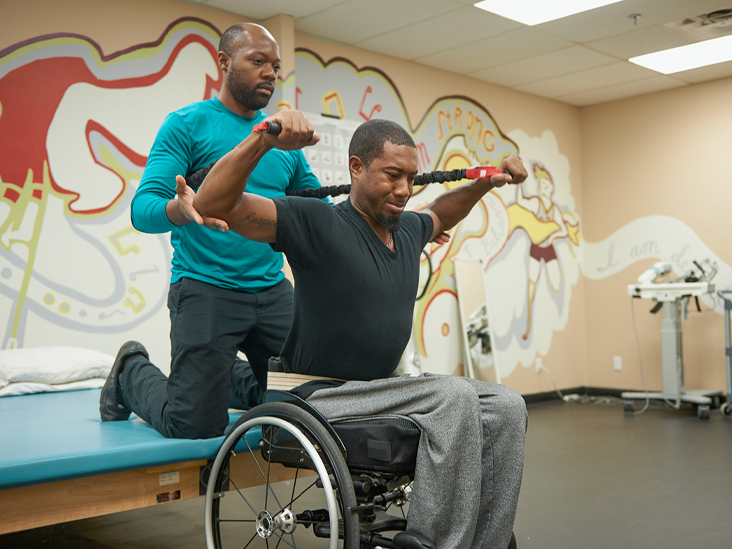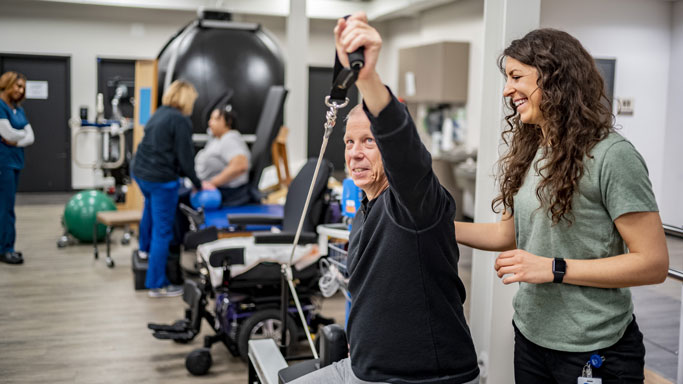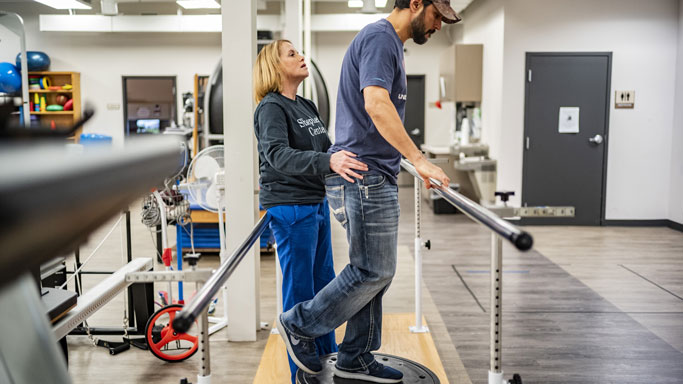Multiple Sclerosis Rehabilitation

Welcome to the Topic “Multiple Sclerosis rehabilitation“
Multiple sclerosis is a disease that affects the functioning of the central nervous system. Depending on where the central nervous system is injured, the prognosis of the disease is usually quite varied; in other words, it can be reasonably stable or, on the flip side, a quickly developing illness. Multiple sclerosis is an autoimmune disease, which means that the condition results in inflammation, demyelination, and loss of neurons.
The symptoms of Multiple Sclerosis result from an abnormal response of the immune system against the central nervous system. The central nervous system comprises the brain, spinal cord, and nerves, so the inflammation damages the insulation around the nerve fibers. Generally, medicine is one of the most important aspects of rehabilitation from Multiple Sclerosis, but there are several other therapies as well.
Setting Goals for Rehabilitation
Dealing with Multiple Sclerosis with medicines alone is not the solution, so various types of therapies must be used in conjunction with the medicine. This is because the effects of the disease extend beyond physical damage, so multiple areas need to be tackled to aid a patient in dealing with their condition.
Discussing the prognosis with a health professional is crucial. It determines the course of the patient’s treatment and what should comprise the rehabilitation process. Different patients will struggle with different aspects of their life, so it is essential to discuss with a professional what route the treatment is going to take to make it most effective for the patient. The following guide contains some of the most common therapies used for Multiple Sclerosis patients and their rehabilitation. Still, depending on the severity of the disease and the stage, there is always the possibility of additional professional help required.
Occupational Therapy

As with any major disease, patients may find it extremely difficult to adjust to life after the diagnosis. This is where occupational therapists can take the lead. Common symptoms of Multiple Sclerosis include fatigue, muscle spasms, numbness in limbs, and on a more extreme level, problems with executive functions such as thinking, planning, and organizing. There is no doubt that patients with MS would find it highly challenging to return to their daily life before such a condition, so occupational therapy will help ease the process. The goal of occupational therapy is to equip the patient with the tools and knowledge they need to make life after diagnosis easier and live independently. Adapting to your environment can be a tricky task on its own, but with the help of an occupational therapist, MS patients can adjust to their new life much easier.
Physical Therapy
One of the main consequences of MS is a limitation in movement – this may be due to the level of pain caused in a specific part of your body, issues with balancing yourself, and unfounded fatigue. Depending on the level of pain a patient experiences or difficulty in movement, a patient with MS may be asked to perform several exercises independently. In contrast, others may require the help of a physiotherapist to rebuild their strength and regain their muscle. Here, the physiotherapist may recommend activities to keep yourself flexible, improve motor coordination and balance to prevent yourself from falling, and how to use aid for physical movements.
Speech Therapy
A disease affecting the brain can also affect your speech. Although it is not an extremely common symptom, the possibility of MS causing issues in how you speak still exists. In this situation, speech therapy becomes another critical aspect of rehabilitation for Multiple Sclerosis. A speech therapist tests the level of difficulty you face with your speech and helps you exercise your mouth the same way a physiotherapist may help with exercising the rest of your body. On a more extreme note, speech therapy may also help if a patient finds it difficult to swallow normally.
Psychological Rehabilitation

As mentioned earlier, MS can affect how you think, plan, organize and perform other executive functions. Like all the other muscles in your body, your brain is a muscle too. While physical therapy may help build strength and endurance in the rest of your body, psychological or cognitive rehabilitation will help a patient with MS build strength for the brain. Because MS targets the brain as well, a patient affected by it may need to learn different strategies and ways to adjust to this change in their brain.
The effect of MS is not purely cognitive, though. Because the disease impacts your brain, it can also send mixed signals to you regarding your mood. Besides the mood changes, a patient with MS may also struggle with the knowledge of the diagnosis and find it extremely difficult to adapt to their new life. Even with a team of health professionals, it is easy to slip into a depressive mindset and face psychological issues with the knowledge of this diagnosis. In this case, a patient with MS must receive counseling or psychotherapy. It can be easy to simply attempt to motivate a patient with MS to deal with this challenging time in their life, but most of the time, mental health professionals are crucial to help a patient adjust to their condition and life.
Vocational Rehabilitation
An autoimmune disorder can affect all areas of the patient’s life; their home life, work, and recreational activities. Although occupational therapists also cater to vocational rehabilitation, a patient with MS may face more issues with their work life than the other areas. Sometimes, it might even require specific vocational therapy, as may be the case with Multiple Sclerosis.
By working with a vocational therapist, a patient with MS can identify all the changes that need to be made to accommodate their condition and how they can make the environment a more comfortable and safe space for them. Furthermore, a vocational rehabilitation therapist may aid a patient with MS in finding and brushing up on skills they need for jobs that suit their condition rather than those that become difficult to perform. They may also recommend ways to make the work environment more feasible for patients with MS, which the patient can suggest to the workplace administrators.
Have any questions regarding the topic “Multiple Sclerosis rehabilitation” feel free to comment below.
Also Read: Spinal cord injury rehabilitation
